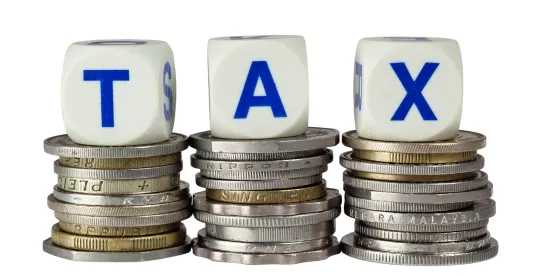On July 3, 2024, the U.S. District Court for the District of Maryland dismissed a First Amendment challenge to Maryland’s Digital Advertising Gross Revenues Tax (the “Tax”) holding that while a provision in the Tax scheme that prohibits taxpayers from directly passing on the Tax to their customers “by means of a separate fee, surcharge, or line-item” was a restriction on the free speech rights of taxpayers, plaintiffs here had not met their burden to show that the provision was unconstitutional on its face. In Chamber of Commerce et al. v. Lierman, No. 21-cv-00410-LKG (D. Md. 2024), the Court explained that while a party challenging the constitutionality of a law on its face must typically show that there are no circumstances under which the law could be applied in a constitutional manner, a party making a facial challenge to a law on First Amendment grounds instead needs to demonstrate only that a “substantial number” of the law’s applications are unconstitutional.
Despite the less demanding standard for First Amendment challenges to “provide[] breathing room for free expression,” the Court noted that facial challenges are nonetheless “disfavored” and even the less demanding standard in First Amendment cases is “still rigorous.” This case highlights the difficulties of challenging only the facial constitutionality of a statute, though taxpayers should be aware that even if this decision stands, the constitutionality of the Tax on First Amendment grounds can still be challenged on an as-applied basis (i.e., as applied to a plaintiff’s specific facts).
The Tax applies to digital advertising service providers on their annual gross revenues derived from digital advertising services provided in Maryland, if the service provider has at least $100 million in global annual gross revenues. The Tax scheme prohibits the providers from “directly passing on the cost of the [Tax] to a purchaser . . . by means of a separate fee, surcharge, or line-item” (the “Prohibition”). Plaintiffs argued that as its members were allowed to raise prices on their customers to cover the additional cost of the Tax, the Prohibition on expressly charging the customer the Tax on the customer’s invoice was “a suppression of speech that insulates lawmakers from responsibility for the [Tax].”
While the Court agreed that the Prohibition “restricts speech, because [the Prohibition] places restrictions on how a taxpayer communicates to its customers about the [T]ax,” the Court nonetheless found that the Tax had a “plainly legitimate sweep” because “Maryland unquestionably possesses the power to levy taxes.” (However, arguably, the Prohibition itself is not a tax levy and is instead a separate restriction that is not necessary to levying the Tax.) Finding that the Prohibition was legitimate, the Court next concluded that plaintiffs had not met their burden of proving facial unconstitutionally as “the record in this matter with regards to how [the Prohibition] would apply to Plaintiffs’ members is not voluminous” and was supported by only “three hypothetical invoices.” The Court also found significant that the Prohibition does not place limitations or restrictions on what taxpayers can say about the Tax and does not “prevent persons subject to the [T]ax from conveying any information they might choose to communicate to a customer” so long as they do not do so in the prohibited manner.
Plaintiffs appealed the Court’s decision to the Court of Appeals for the Fourth Circuit on August 2, 2024. Stay tuned for further developments.



 />i
/>i
